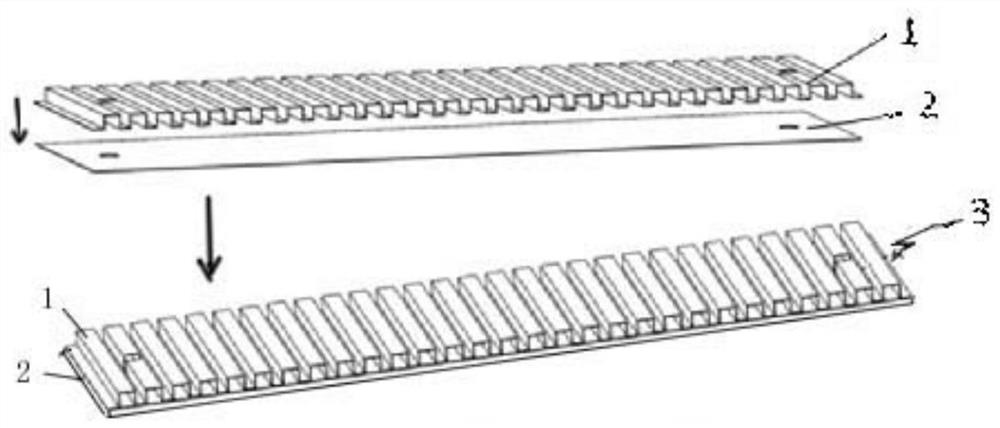A proton exchange membrane fuel cell stack bonding and sealing method
A technology for fuel cell stacks and proton exchange membranes, applied in fuel cells, circuits, electrical components, etc., can solve the problems of impractical fuel cell production, cumbersome process, and difficult operation, and achieve simplified sealing and stack assembly processes and processes Simple, easy-to-operate effects
- Summary
- Abstract
- Description
- Claims
- Application Information
AI Technical Summary
Problems solved by technology
Method used
Image
Examples
Embodiment
[0032] This embodiment takes room temperature curing silica gel sealed cathode open-type air-cooled stack as an example
[0033] Step 1. Prepare 3 pieces of bipolar plates, fix the anode plate of the bipolar plate upwards on the dispensing disc 4, spread the flow channel carbon paper 7 and the anode carbon paper 8 on the anode plate, and the flow channel The size of carbon paper 7 and anode carbon paper 8 is smaller than that of bipolar plate 3 and membrane electrode 9, and form a dispensing line 6 of 6mm. Use pressure plate 5 to fix bipolar plate 3, channel carbon paper 7 and anode carbon paper 8 To flatten.
[0034] Step 2. Set the program of the dispensing machine and the dispensing line 6 of the dispensing machine, and start dispensing along the edge of the anode carbon paper 8; the height of the dispensing at the edge of the anode plate of the bipolar plate is 4mm, and the width of the dispensing 7mm,. Among them, any one of AB glue, epoxy glue and silica gel is used; d...
PUM
 Login to View More
Login to View More Abstract
Description
Claims
Application Information
 Login to View More
Login to View More - R&D
- Intellectual Property
- Life Sciences
- Materials
- Tech Scout
- Unparalleled Data Quality
- Higher Quality Content
- 60% Fewer Hallucinations
Browse by: Latest US Patents, China's latest patents, Technical Efficacy Thesaurus, Application Domain, Technology Topic, Popular Technical Reports.
© 2025 PatSnap. All rights reserved.Legal|Privacy policy|Modern Slavery Act Transparency Statement|Sitemap|About US| Contact US: help@patsnap.com



